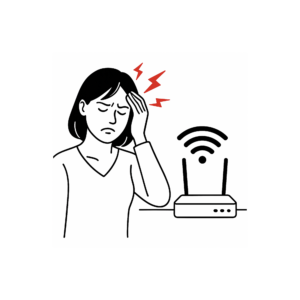 Not long ago I stumbled on a YouTube video where a Detroit judge was dealing with a very difficult tenant (part 1, part 2). The video isn’t all that interesting (though Judge Simpson is entertaining at times) and to be honest, I only arrived at it via autoplay while I was doing some chores.
Not long ago I stumbled on a YouTube video where a Detroit judge was dealing with a very difficult tenant (part 1, part 2). The video isn’t all that interesting (though Judge Simpson is entertaining at times) and to be honest, I only arrived at it via autoplay while I was doing some chores.
The case is pretty mundane. A tenant is being evicted for non-payment of rent, and launches into a litany of personal misfortunes that prevent her from paying. The judge listens as plaintiff makes a brief case saying “she didn’t pay her rent,” and then the defendant goes on and on. And on.
I wasn’t really listening closely, but I snapped to attention when the woman started getting to a rather bizarre medical claim.
I have three functional disabilities and electro hypersensitivity which makes me incompatible with any of the wireless utility meters, internet WiFi, cell towers, etc. This home has been mitigated for me with the acknowledgement and cooperation of the landlords who prior to my tenancy had replaced the utility meters with opt out meters when I made them aware of all the issues of electromagnetic frequencies they have ethernet installed. And we had things mitigated to reduce the interference of electricity and wireless devices including filters in the plugs of electrical plugs of the home…
I’m sorry…what?
In the grand tradition of crank science, perpetual motion machines, and “polywater,” let’s pour ourselves a tinfoil martini and discuss Electromagnetic Hypersensitivity, or EHS. It’s a real thing.
That is, the phenomenon of people claiming it is real. As for the actual medical condition…
What The Heck is Electromagnetic Hypersensitivity?
According to believers, exposure to WiFi, cell phones, and other electromagnetic fields (EMFs) can cause nausea, fatigue, headaches, skin rashes, memory problems, and a general inability to cope with 21st-century life.
In extreme cases, sufferers claim to be so sensitive they must flee to the wilderness or build their homes inside Faraday cages. The woman in the court case above said she was moving to a rural area to avoid EHS problems. (She was appearing in court via Zoom – presumably via a hard-wired ethernet connection. But what about that glowing screen in front of her?)
The WHO has a page on EHS, and says
EHS is characterized by a variety of non-specific symptoms, which afflicted individuals attribute to exposure to EMF. The symptoms most commonly experienced include dermatological symptoms (redness, tingling, and burning sensations) as well as neurasthenic and vegetative symptoms (fatigue, tiredness, concentration difficulties, dizziness, nausea, heart palpitation, and digestive disturbances). The collection of symptoms is not part of any recognized syndrome.
One of the most (in)famous cases is that of 15-year-old Jenny Fry, who tragically took her life in 2015. Her parents claimed the Wi-Fi at her British school made her existence unbearable. The Guardian covered the story, which was widely circulated in EHS communities. But correlation, as always, does not imply causation.
The Science
One thing I note is that all of the symptoms are caused by many things. I get a headache from time to time, and it’s not caused by my Wi-Fi. I get fatigued some time, and over the course of my life I’ve occasionally gotten a rash. Been nauseous a time or two as well. Indeed, someone could come down with a cold or flu and label it EHS.
Now, if people who had EHS always got strange purple welts on their forearms, that’d be one thing. But these symptoms are so common (and also so vague) that they could be caused by a myriad of factors.
If you were a scientist, how would you test someone to see if they have EHS? If you answered something like this, you get a gold star: put claimed sufferers in a room, and ask them if they feel symptoms without telling them if electromagnetic fields are present. In other words, put a wi-fi router in the ceiling and randomly turn it on and off, asking the patient if they feel anything.
And that’s exactly what scientists have done. Over and over. A meta-analysis published in Bioelectromagnetics (“Idiopathic environmental intolerance attributed to electromagnetic fields (formerly ‘electromagnetic hypersensitivity’): An updated systematic review of provocation studies” by. Rubin, et al., 2010) reviewed 46 blind or double-blind experiments.
Including studies reported in our earlier review, 46 blind or double-blind provocation studies in all, involving 1175 IEI-EMF volunteers, have tested whether exposure to electromagnetic fields is responsible for triggering symptoms in IEI-EMF. No robust evidence could be found to support this theory. However, the studies included in the review did support the role of the nocebo effect in triggering acute symptoms in IEI-EMF sufferers. Despite the conviction of IEI-EMF sufferers that their symptoms are triggered by exposure to electromagnetic fields, repeated experiments have been unable to replicate this phenomenon under controlled conditions. A narrow focus by clinicians or policy makers on bioelectromagnetic mechanisms is therefore, unlikely to help IEI-EMF patients in the long-term.
In other words, 1,175 people who claimed to have EHS could not detect EMFs any better than random chance. When subjects didn’t know whether EMFs were present, their symptoms magically disappeared.
A nocebo effect is a belief in harm that causes real symptoms. Tell someone that WiFi is dangerous often enough, and some people will start to feel ill anytime they’re near a router, even if it’s unplugged.
Do You Suffer from Electromagnetic Hypersensitivity?
Good news: you don’t.
It doesn’t exist. Claims of EHS should be gently rebuked with references to established science.
Of course, some compassion is owed to those who claim such a malady. They are experiencing something, even if it’s delusional. The case of Jenny Fry obviously involves other mental conditions, and the right thing to do is to direct people who claim to be suffering to EHS to undergo a medical examination, which could uncover other medical or mental issues, or both.























I take it you are not a scientist. The above is flawed logic. (particularly that you expect the patient to be able to notice symptoms immediately or at all). Symptoms may be delayed or subtle or exacerbated by other factors (for example if you PH balance was high, or low).
Your “science” neither proved nor disproved anything.
But what is a fact, proven in science, is that non visible, ethereal electromagnetic waves can have a real and damaging effect on physical and living matter. One extreme example of this is the effect of Gamma radiation on human tissue. If people are allergic to Gamma / EM radiation, then it is conceviably possible that some are sensitive to other forms of electromagnetic radiation.